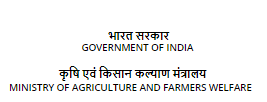Myco Farm
Background:
Current era of agriculture is at cross roads. Due to low use efficiency of chemical fertilizers, the excessive and non judicious uses of these have not only polluting the soil but also pose health risks to humans. The declining trend in carrying capacity of land and other natural resources have drawn the attention of environmental and agricultural scientists to look for alternatives for sustaining the crop productivity under low input and organic agriculture. Amongst the biological interventions, the use of arbuscular mycorrhizal fungi (AM fungi) are one of the fungal biofertilizer has proven potential in plant production. It offers several benefits to plants such as nutrient mobilization particularly P, water absorption, disease resistance, heavy metal toxicity, resistance to salt stress etc. Since, AM fungi are obligate symbionts its propagation is dependent on host plant roots. Among the several other methods used, the use of substrate based pot cultures and at on-farm using different host plants arc most popular and gaining importance due to its compliance to PCO specifications. Therefore there is need to have rapid multiplication method to mass produce these native AM fungi for the application in crop plants including soybean or soybean-based cropping system. Keeping in view or the higher efficacy of native AM fungi, in the current innovation we recovered native strains and mass produced in trap cultures in pots and at on-form after optimizing the substrates and host plants. Through this optimization process of substrate, hosts and conditions, the AM fungal spores and propagules of native strains can be produced al much higher rate with high quality inocula and meeting the requirement of FCO technical specifications. Furthermore, any industry can formulate the AM fungal inoculum in a powder form or in granular form easily while meeting the FCO requirements M/s Biome Technologies, Ahmednagar (M.S.), India - 414005 has shown interest to purchase this technology
Technology Details:
The success of AM fungi for enhanced plant production is depends on type of AM strain available for the inoculation. The native strains are found to be most effective and desirable. Therefore, the availability of these AM fungi as “AM fungal inoculum" is required to be mass propagated. Through the current intervention, we developed a method where using a combination of soil: sand mix with organic substrate such as vermin-compost and soybean hulls has enhanced the recovery and multiplication of propagules of consortia of AM fungi (3-4 mixed species). The on-farm system production of AMF involved the raised beds prepared with organic substrate where various trap plants namely, maize, marigold, sorghum, fenugreek and barseem grown in succession and has tremendously enhanced the AM fungi infectious propagules in the raised beds. Through on-farm system transplanted crops such as tomato, chili, onion etc., can be grown as trap plants and AMF can be produced underneath. On-farm production method found to be more economical production system and also most suitable for production of quality seedlings of horticultural plants. M/s Biome Technologies, Ahmednagar (M.S.), India - 414005 has shown interest to purchase this technology. Through the technology know-how from IISR Indore, AM fungal biofertilizer manufacturing companies can adopt either pot culture or on-farm production method and may customize the conditions further as per the infrastructure available and undertake production of native AM fungi while meeting the FCO specification.


